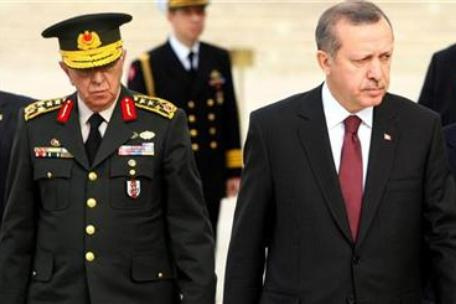Erdogan’s Partisan Policy

Four top leaders of the Turkish military decided to step down on Friday, following disagreement with the civilian government over the promotion of military officials charged with involvement in a 2003 coup to topple the ruling Islamist AK Party. Bahram Amir-Ahmadian, professor and analyst, speaks to Iranian Diplomacy about the consequences of the high-profile resignations for Turkey’s political future.
IRD: This the first time we are witnessing a collective military resignation in Turkey. How did this happen?
BAA: With the political transformation proceeding in Turkey the military are gradually losing their power. The constitutional reforms approved by Turkish citizens in 2010 make military personnel subject to trial in civilian courts. The battle between the AKP and the military will go on for the foreseeable future. Turkey’s military have utilized their power and their position as self-proclaimed guardians of Kemal Ataturk’s orthodox secularism, and every political party they’ve assumed as a threat to their power, particularly the Islamist parties. They staged three coups in a two-decade span to topple civilian governments. That era is over, and no country –especially an EU-member aspirant such as Turkey- can join the developed countries’ club if it calibrates policies to the military’s strategies. In that sense, containing the Turkish Army’s clout is inevitable in order to integrate within the European community. But Erdogan has put his finger on a sensitive button that will not immunize him and his party from its consequences. The Army is still powerful, and it may try to reinstate its power.
IRD: Will the resignations destabilize Turkey, considering that the country has been calm for almost a decade?
BAA: Most likely. The resignation of the top four officials of the military means there is political tension. Their resignations will annoy the rank and file of the army, which is still a powerful lever in politics, the economy, and national security. Erdogan is playing a dangerous game that only serves the interests of his party. In Turkey, like many other developing countries, individuals are still more powerful than the structures. Powerful military officials bring the country credit and undermining them will not serve the country good. Turkey’s peaceful path towards development may turn quite bumpy with the Turkish PM’s partisan measures.
IRD: How will the military-AKP gap influence Turkey’s international status?

